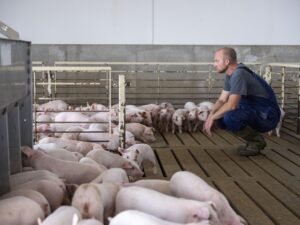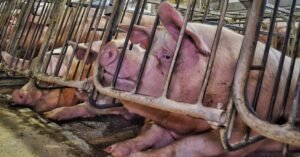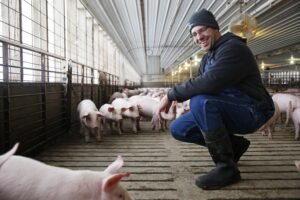In a landmark development for agricultural biotechnology, the United States Food and Drug Administration has approved an innovative gene-editing technique that creates pigs resistant to porcine reproductive and respiratory syndrome (PRRS). The announcement came Wednesday from Genus plc, a prominent animal genetics company based in Basingstoke, England, whose share price leapt an impressive 19% following the news.
PRRS represents one of the most devastating ailments afflicting global swine populations, causing immense suffering and premature mortality among affected animals. Research indicates that infections necessitate antibiotic usage to surge beyond 200%, exacerbating concerns about antimicrobial resistance. The disease ravages through facilities with brisk transmission, leaving producers grappling with substantial economic setbacks.
The scientific advancement involves a precise genetic modification where researchers eliminated portions of a specific protein the virus requires for infection. This clever deletion renders swine inherently resistant to the pathogen without introducing foreign genetic material. Genus collaborated extensively with regulatory authorities, a process they described as “years of close collaboration” with the FDA.
What makes this approval particularly consequential is the lengthy journey toward fruition. The PRP programme, short for PRRS Resistant Pig, represents a culmination of sustained research efforts across multiple scientific disciplines. The technique demonstrates how biotechnological solutions can address agricultural challenges through which animal welfare improvements occur.
Genetic resistance works differently than traditional interventions. Unlike vaccines that stimulate immune responses, this approach fundamentally alters susceptibility by removing the viral entry point. This distinction matters greatly for the agriculture community.
Despite the regulatory milestone, Genus clarified that commercial availability isn’t immediate. Commercialization in the United States is anticipated no earlier than 2026. The delay stems from both regulatory considerations and biological constraints – resistant traits must propagate through generations before sufficient resistant animals exist to meet industry demand.
The company’s stock performance reflected investor enthusiasm toward this novel technology. Genus shares, which had shown a modest 4.2% increase over the previous 12 months, jumped dramatically on Wednesday’s announcement.
Market analysts suggest the approval could reshape competitive dynamics across the animal genetics sector. These resistant pigs could eventually transform production economics by reducing treatment costs, decreasing mortality, and enhancing farm sustainability. Worker demands might decrease as healthier animals require less intensive monitoring and intervention.
Genus emphasized that successful commercialization requires additional approvals in key export markets. The company actively pursues regulatory clearance in Mexico, Canada, and Japan – nations representing vital destinations for U.S. pork exports. Progress with Chinese regulators continues, although specific timelines weren’t disclosed.
Several nations have already embraced the technology. Brazil, Colombia, and the Dominican Republic issued positive determinations, effectively regulating these genetically modified pigs identically to conventional swine. These precedents may influence pending decisions in other jurisdictions.
Regulatory harmonization presents an ongoing challenge for biotechnology adoption in agriculture. While some regions welcome innovation rapidly, others proceed with heightened caution toward genetic modifications. This disparity creates complex trade implications that Genus must navigate carefully.
The approval signals evolving attitudes regarding gene-editing applications in food animals. Unlike older transgenic approaches which inspired considerable consumer hesitation, precise edits that remove rather than add genetic material have gained greater acceptance.
Animal welfare advocates note that disease resistance could substantial alleviate suffering. The technology might reduce antibiotic dependency in pork production – a crucial objective amidst growing antimicrobial resistance concerns globally.
Producers will face complex adoption decisions balancing potential benefits against market acceptance uncertainties. While the technology promises improved productivity and welfare, consumer perceptions regarding gene-edited food products vary significantly across different markets and demographics.
PIC, a subsidiary of Genus, has emphasized “responsible stewardship” of this technology, recognizing the delicate balance between innovation and maintaining consumer trust. Their measured approach suggests industry recognition that technical capability must align with societal acceptance.
The FDA’s decision potentially establishes precedents for future gene-editing applications in agricultural contexts. As the technology progresses from regulatory approval toward commercial implementation, its reception will influence the trajectory of biotechnology in food production systems worldwide.






